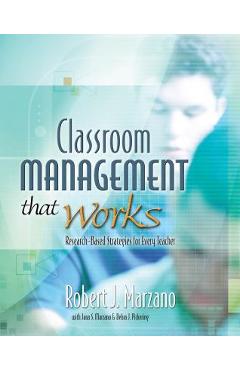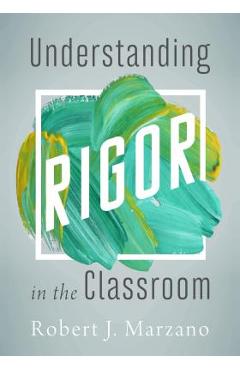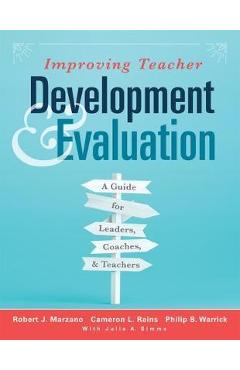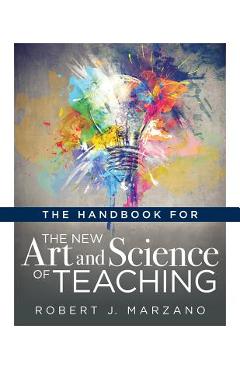The New Art and Science of Classroom Assessment: (authentic Assessment Methods and Tools for the Classroom) - Robert J. Marzano

Detalii The New Art and Science
libris.ro
228.5 Lei
253.89 Lei
Education
Robert J. Marzano
The New Art and Science - Disponibil la libris.ro
Pe YEO găsești The New Art and Science de la Robert J. Marzano, în categoria Education.
Indiferent de nevoile tale, The New Art and Science of Classroom Assessment: (authentic Assessment Methods and Tools for the Classroom) - Robert J. Marzano din categoria Education îți poate aduce un echilibru perfect între calitate și preț, cu avantaje practice și moderne.
Preț: 228.5 Lei
Caracteristicile produsului The New Art and Science
- Brand: Robert J. Marzano
- Categoria: Education
- Magazin: libris.ro
- Ultima actualizare: 28-10-2025 01:22:05
Comandă The New Art and Science Online, Simplu și Rapid
Prin intermediul platformei YEO, poți comanda The New Art and Science de la libris.ro rapid și în siguranță. Bucură-te de o experiență de cumpărături online optimizată și descoperă cele mai bune oferte actualizate constant.
Descriere magazin:
Part of The New Art and Science of Teaching series Shift to a new paradigm of classroom assessment that is more accurate, meaningful, and authentic. The New Art and Science of Classroom Assessment explores the inadequacies of traditional assessment methods and details how to use classroom assessment to its full potential. Step by step, the authors outline a clear path for transitioning to more holistic assessment methods that truly reflect course curriculum and student progress. Learn how you can develop authentic assessment for learning in the classroom: Explore a new perspective on effective assessment for learning, including classroom, interim, and year-end assessments (from formative assessment to summative assessment). Learn how to create a curriculum that provides clear guidance as to what should be assessed. Acquire strategies for assessing four general types of skills: (1) cognitive skills, (2) knowledge-application skills, (3) metacognitive skills, and (4) general behavior skills. Develop expertise with classroom assessment tools, such as the types of declarative content, selected response items, and short constructed response questions. Download free reproducible tables and checklists to assist in implementing new methods of assessment design. A joint publication of ASCD and Solution Tree Contents: Introduction Chapter 1: The Assessment-Friendly Curriculum Chapter 2: Proficiency Scales Chapter 3: Parallel Assessments Chapter 4: The Measurement Process and Different Types of Assessment Chapter 5: Summative Scores Chapter 6: Non-Subject-Specific Skills Chapter 7: Record Keeping and Reporting Epilogue Appendix A: Types of Declarative Content Appendix B: Types of Test Response Items References and Resources Books in The New Art and Science of Teaching series: The New Art and Science of Teaching The Handbook for the New Art and Science of Teaching The New Art and Science of Teaching Reading The New Art and Science of Teaching Writing The New Art and Science of Classroom Assessment

Produse asemănătoare
Produse marca Robert J. Marzano

Classroom Management That Works: Research-Based Strategies for Every Teacher - Robert J. Marzano
![]() libris.ro
libris.ro
Actualizat in 28/10/2025
216.24 Lei

Understanding Rigor in the Classroom - Robert J. Marzano
![]() libris.ro
libris.ro
Actualizat in 28/10/2025
167.12 Lei

The New Art and Science of Classroom Assessment: (authentic Assessment Methods and Tools for the Classroom) - Robert J. Marzano
![]() libris.ro
libris.ro
Actualizat in 28/10/2025
228.5 Lei

Teacher Evaluation That Makes a Difference: A New Model for Teacher Growth and Student Achievement - Robert J. Marzano
![]() libris.ro
libris.ro
Actualizat in 28/10/2025
260.03 Lei

